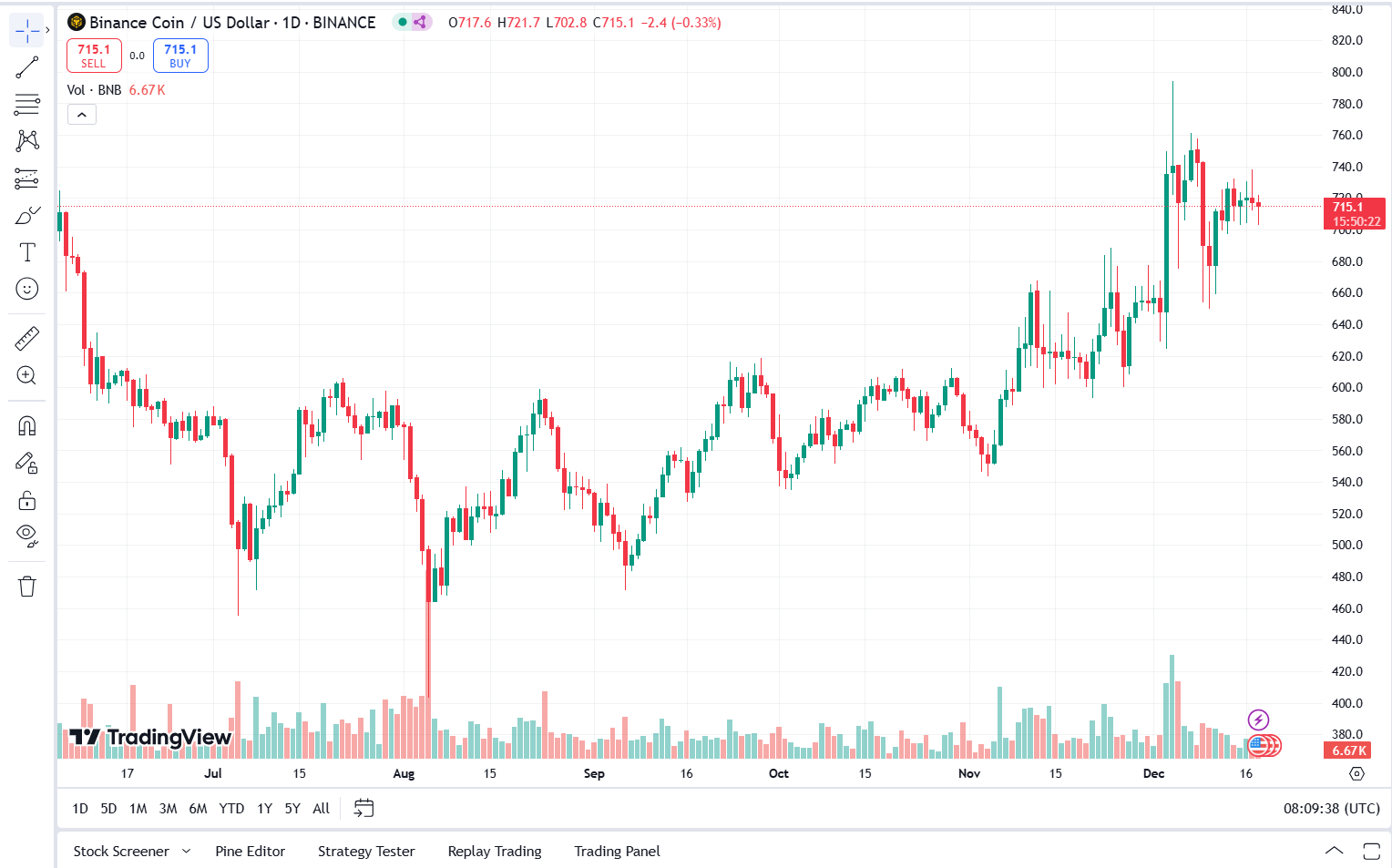In a significant development within the Australian cryptocurrency market, the Australian Securities and Investments Commission (ASIC) has filed legal action against Binance Australia Derivatives, accusing the company of misclassifying over 500 retail investors as wholesale clients. This alleged misclassification, which occurred between July 2022 and April 2023, exposed these clients to high-risk crypto derivative products without the consumer protections they were entitled to under Australian law.
The legal proceedings have sparked significant concern within the cryptocurrency industry, with ASIC’s Deputy Chair, Sarah Court, highlighting that the case underscores major failings in Binance’s compliance systems. “Our case alleges Binance’s compliance systems were woefully inadequate and exposed more than 500 clients to high-risk, speculative products without the right consumer protections in place,” Court stated, adding that many affected clients had suffered substantial financial losses.
This case is just one of several recent regulatory actions that reflect Australia’s increasing scrutiny of the digital asset sector. The allegations against Binance come at a time when the Australian government is taking bold steps to protect consumers and enhance market integrity in the rapidly growing cryptocurrency space.
More than 500 retail clients of Oztures Trading Pty Ltd, trading as Binance Australia Derivatives, were denied important consumer protections after being misclassified as wholesale clients, ASIC alleges in documents filed in the Federal Court. https://t.co/nw2TxSRR6x pic.twitter.com/Sm9nyBWjjE
— ASIC Media (@asicmedia) December 18, 2024
The Allegations: A Risky Misclassification of Clients
ASIC’s legal filing outlines that Binance Australia Derivatives incorrectly categorized 83% of its Australian customer base as wholesale investors instead of retail clients. Wholesale investors, under Australian law, are considered more experienced and capable of handling higher levels of risk. Retail investors, on the other hand, are granted additional consumer protections such as access to product disclosure statements, compensation schemes, and dispute resolution mechanisms.
By misclassifying these clients, Binance is accused of exposing them to crypto derivative products that come with significant financial risk, without offering the appropriate safeguards. The misclassification allegedly affected more than 500 clients, many of whom experienced substantial financial losses. ASIC further pointed out that Binance failed to provide these clients with critical product disclosure statements and access to dispute resolution, both of which are fundamental protections for retail investors under Australian law.
In a notable attempt to make amends, Binance reportedly paid $13 million in compensation to affected clients in 2023. However, ASIC’s ongoing legal actions indicate that the compensation is only part of the solution, as the regulator seeks to ensure more stringent compliance with Australian financial laws and safeguard consumer interests in the future.

Broader Regulatory Concerns: The Crypto Sector Under Scrutiny
The legal action against Binance is just the latest in a series of high-profile regulatory moves aimed at curbing potential misconduct within the digital asset sector. In addition to the action against Binance, ASIC recently fined another prominent cryptocurrency platform, Kraken, for offering unlawful margin trading products. Local customers reportedly suffered losses exceeding $5 million as a result of Kraken’s actions.
These actions are part of a broader effort by ASIC to tighten regulatory oversight of digital assets in Australia. Earlier this month, the regulator released a consultation paper to provide more clarity on how financial product definitions apply to digital assets, signaling a more comprehensive approach to regulation in the sector. Starting in November 2024, all cryptocurrency exchanges operating in Australia will be required to hold a financial license, a move designed to ensure that these platforms comply with the same standards as traditional financial institutions.
ASIC’s Role: Protecting Consumers and Maintaining Market Integrity
The legal action also comes on the heels of ASIC’s decision to cancel Binance’s Australian financial services license in April 2023. This decision followed a targeted review of the company’s operations, which revealed significant compliance issues. The cancellation of the license further underscores ASIC’s commitment to holding cryptocurrency exchanges accountable and ensuring that they meet Australian regulatory standards.
ASIC’s broader efforts to regulate the digital asset sector include recent updates to guidelines for financial services firms managing client assets. These updated guidelines place stricter requirements on cryptocurrency custody and enhance oversight of asset management practices, signaling a clear message that regulatory bodies will no longer overlook compliance failures in the crypto space.
As Australia continues to tighten regulations on digital assets, the actions taken by ASIC against Binance and other platforms send a clear signal to the cryptocurrency industry: the era of leniency is over. The regulatory framework is evolving rapidly, with an increasing focus on ensuring that crypto exchanges provide adequate consumer protections and operate transparently.
Related news: Binance to List PENGU and Simon’s Cat: CAT Up 60%, 623M PENGU Surge








